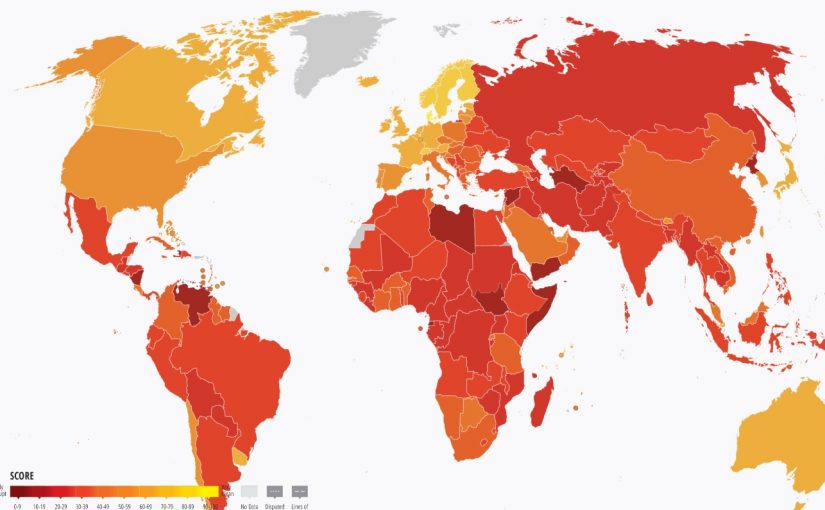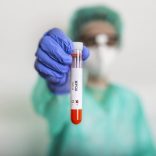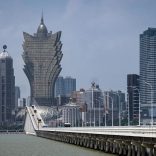UNICEF warns of "volatile and unpredictable" situation in northern Mozambique
Summary of NGO corruption perception index results for Mozambique, other CPLP states

Image: CPI 2023/Transparency International
Equatorial Guinea is considered the third most corrupt country on the African continent, dropping one place to 172nd out of 180 on the Corruption Perception Index, according to a report released on Tuesday.
In this year’s edition of the Corruption Perception Index (CPI) drawn up by the non-governmental organisation Transparency International, which ranks 180 countries and territories from zero (perceived as very corrupt) to 100 points (very transparent), Equatorial Guinea (17 points), South Sudan (13) and Somalia (11) “register the lowest results, with no sign of improvement” in Africa.
🔵 OUT NOW! We analysed 180 countries to see how they scored in the fight against corruption. Check out your country’s score! #CPI2023 https://t.co/0ZNQZqjgrL
— Transparency International (@anticorruption) January 30, 2024
Equatorial Guinea’s trend over the last five years has seen it lose one point and over the last 11 years it has lost three.
A former Spanish colony, Equatorial Guinea has been a member of the Community of Portuguese Language Countries (CPLP) since 2014.
Timor-Leste has improved two places and is in the top half of the least corrupt countries in the Asia-Pacific group, ranking 13th out of 31 in the Corruption Perception Index.
This year’s edition of the Corruption Perception Index (CPI) shows that Timor-Leste has risen to 75th place out of 180, achieving 43 points on a scale of zero to 100.
Timor-Leste’s trend over the last five years has translated into an improvement of five points and considering the last 11 years the increase has been ten.
São Tomé and Príncipe has dropped three places and is, among the 49 states considered, the 7th least corrupt country in sub-Saharan Africa, according to the CPI.
This year’s edition of the CPI shows that São Tomé and Príncipe has slipped to 68th place out of 180, achieving 45 points on a scale of zero to 100.
São Tomé and Príncipe’s trend over the last five years has seen it lose one point and over the last 11 years it has gained three more.
Cabo Verde is the second least corrupt country in sub-Saharan Africa, and the 31st among the 180 states and territories considered, in today’s Transparency International report.
This year’s edition of the Corruption Perception Index shows that Cabo Verde scored 64 points on a scale ranging from zero (perceived as very corrupt) to 100 (very transparent).
The report highlights that Cabo Verde recently passed a law creating an electronic platform for judicial operators, “in order to reduce delays and pending cases”.
The trend over the last five years has seen an increase of six points, and considering the last 11 years, the improvement has been four points.
Guinea-Bissau has moved up one place and is the 40th most corrupt country among the 49 sub-Saharan African countries analysed.
In the global index, the country rose to 160th – out of 180 countries and territories, reaching 22 points.
Guinea-Bissau’s trend over the last five years has seen it rise four points, but over the last 11 years it has lost three.
Mozambique has dropped five places and is the 35th most corrupt state among the 49 countries considered in sub-Saharan Africa.
This year’s edition of the CPI points out that Mozambique has slipped to 147th out of 180 on the Corruption Perception Index, reaching 25 points.
Mozambique’s trend over the last five years has seen it lose one point and over the last 11 years it has lost six.
Transparency International considers that the independence of the justice system in Brazil “has suffered significant setbacks for almost a decade”.
READ: Portugal: Fight against corruption making no progress in country – report
In this year’s edition of the CPI Brazil scored 36 points, on a scale from zero to 100, ranking 105th out of 180 countries and territories considered in the document.
For Transparency International, “the involvement of key figures, including the main judge and prosecutor [Sérgio Moro], with the government of former president Jair Bolsonaro in ‘Operation Car Wash’ has seriously jeopardised the independence of the judiciary and the investigation itself”.
The report highlights that although the anti-corruption operation is now ten years old and has had the “undeniable merit of exposing major corruption schemes”, “Lava Jato” has also been criticised “for compromising its impartiality”.
“Both Bolsonaro and current president Luiz Inácio Lula da Silva have circumvented processes designed to increase the legitimacy and independence of the judiciary by appointing trusted individuals as Attorney General,” the report emphasises.
Transparency International also considers that Lula da Silva’s “controversial decision” to appoint his former lawyer as a judge on the Supreme Court of Justice “raises even more concerns”.
“In addition, the recent decision to invalidate all evidence in the Odebrecht settlement, the largest foreign bribery case, and to suspend the record fine for JBS, one of the world’s leading food companies, guarantees impunity for numerous cases of grand corruption in Brazil and around the world,” the report emphasises.
Brazil’s trend over the last five years has translated into a rise of just one point, but considering the last 11 years, it has lost seven.
Angola has improved its fight against corruption, ranking 121st on the CPI, reaching 33 points on the scale.
According to this year’s edition of the CPI, in statistical terms Angola has improved 14 points since 2019, ranking 121st out of 180 countries and territories and 21st out of 49 countries in the sub-Saharan African region.
The report highlights that Angola has adopted anti-corruption measures, which it has applied “consistently” to recover stolen assets and openly hold alleged perpetrators accountable through national judicial systems.
Angola has finalised an anti-corruption strategy for the 2018-2022 period and these efforts, along with other judicial reforms, have led to the recovery of US$3.3 billion (€3 billion) in assets by the sovereign wealth fund, the document adds.
The investigation and prosecution of senior officials also culminated in the recovery of around US$7 billion (€6.4 billion) in financial and tangible assets.
The trend over the last five years has translated into an increase of seven points, and considering the last 11 years, the improvement is even more significant: 11 points.
The CPI was created by Transparency International in 1995 and has since become a benchmark for analysing the phenomenon of corruption, based on the perception of experts and business executives about the levels of corruption in the public sector.
It is a composite index, i.e. it is the result of combining sources of corruption analysis developed by other independent organisations.
In 2012, the organisation revised the methodology used to construct the index so that scores could be compared from one year to the next.
A/ 10 Most Honest African Countries per latest Corruption Perceptions Index (CPI)
1. Seychelles (more honest than UK, US etc)
2. Cabo Verde
3. Botswana
4. Rwanda
5. Mauritius
6. Namibia
7. Sao Tome & Principe
8. Benin
9. Ghana
10. Senegal
https://t.co/7DtcdjRO9Y— Charles Onyango-Obbo (@cobbo3) January 30, 2024












Leave a Reply
Be the First to Comment!
You must be logged in to post a comment.
You must be logged in to post a comment.